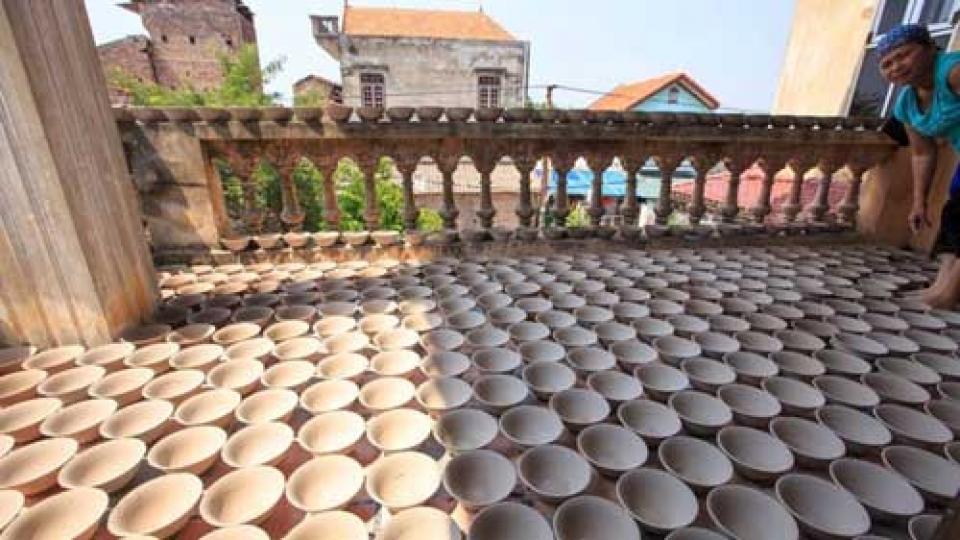In Dau Doi village, the women are involved in almost every process of making ceramics, while the men are responsible for the heavier jobs. The women of Dau Doi village still use traditional manual techniques to make their products.
Ngo Thi No learned the craft from her mother and she has been making ceramics for nearly 20 years.
“I work all year. I work less on rainy days and more on sunny days. I hire one worker and pay him VND150,000 a day and I can make 50 ovens a day earning a profit of VND100,000. This job is not the main source of income for our family”, No said.
Terra-cotta ovens are the main product in Dau Doi. There are a lot of steps involved in making the product: soaking the clay, cutting the clay, shaping, baking and drying. The main materials used in baking are rice husks and straw. The baking process takes 3 to 4 days.
“Previously, we baked ceramic products using firewood and straw. 20 years ago, we began to use rice husks to bake. We use 500 to 600 bags of rice husks for baking each day. Rice husks can maintain a stable temperature for three or four days, while wood or straw burns up in two or three hours. Products baked with rice husk have higher quality, said Tran Thi Sang, a rice husk seller.
In recent years, the pottery trade in Dau Doi village has been in decline due to fierce competition from electronic and digital products. The number of pottery producers in the village has fallen. But local people are determined to continue the trade.
“I sell our products in Minh Hai, which is very far away. Sometimes, sales are very slow. Our ovens can be used with firewood or coconut bark”, No added.
For the time being, the potter trade continues to bring income to the people of Dau Doi village and to the other villages in Hon Dat district like Hon Queo and Tri Ton.
